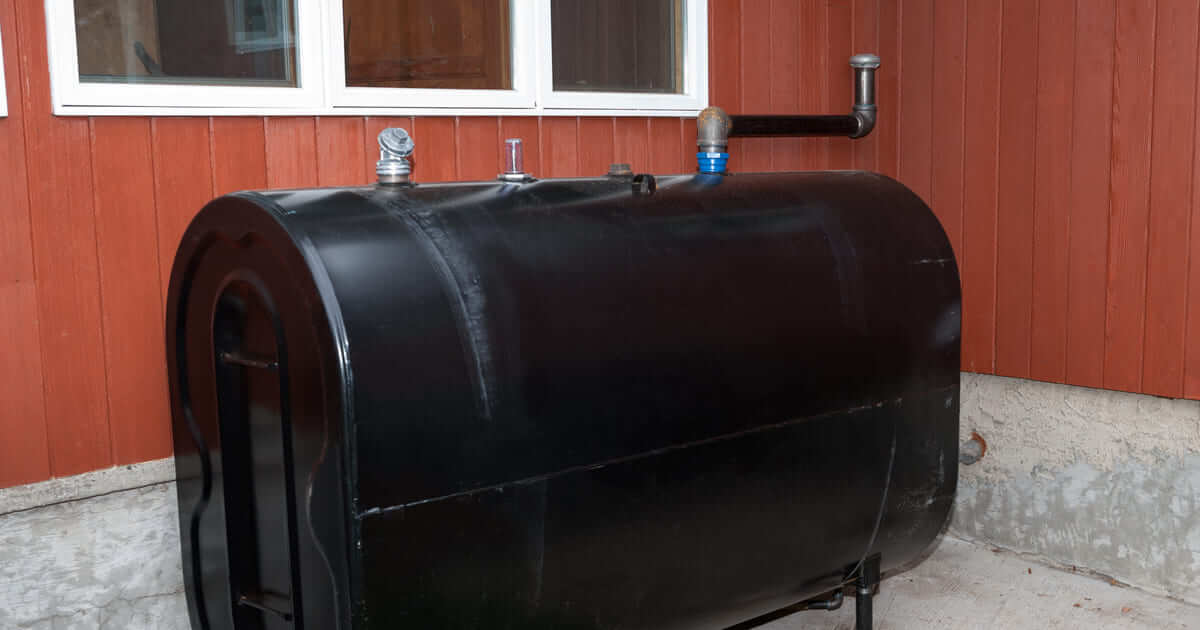With winter fading and spring on the horizon, now is the perfect time to evaluate your heating system. If yours is outdated or inefficient, you may be wondering about the difference between oil vs. gas heat. Both options have their pros and cons, and the right choice depends on key factors like cost, performance, and upkeep.
Let’s explore the differences between oil vs. gas heat to help you make the smartest decision for your home.
Oil Heat vs. Gas Heat: Which One is Safer?
Heating oil is not explosive in its liquid form, making accidental fires far less likely. If an oil furnace malfunctions, it typically produces visible warning signs like smoke, soot, or odors, giving homeowners time to act before the danger of fire or a carbon monoxide leak.
Natural gas, however, is highly flammable. A leak combined with a spark or open flame can lead to an explosion. Additionally, gas furnaces burn silently and can produce carbon monoxide (CO) without warning, making leaks harder to detect.
✅ Verdict: Oil heating poses fewer fire and leak risks than gas, but regular maintenance and CO detectors are essential for both systems.
Oil Heat vs. Gas Heat Cost: Which One Saves More Money?
Oil furnaces cost less upfront, but oil heating prices fluctuate and require more frequent maintenance, leading to higher long-term expenses.
Gas furnaces cost more to install, especially if a new gas line is needed, but lower fuel prices and minimal maintenance make them the more affordable long-term option.
💰 Verdict: Gas heating saves more money over time, while oil heating offers a lower initial investment.

Oil vs. Gas Heat: Which One Heats Better?
Oil furnaces produce more heat per gallon, making them ideal for colder climates. However, with 80-90% Annual Fuel Utilization Efficiency (AFUE) they burn less efficiently than gas furnaces and release more carbon dioxide (CO₂) and particulate matter. This contributes to air pollution.
Gas furnaces are more energy-efficient (89–98% AFUE) and produce fewer emissions when burned, but methane leaks from pipelines can have a significant environmental impact also.
🔥 Verdict: Gas heating is more efficient, but oil delivers stronger heat output. Both have environmental trade-offs.
Oil Heating vs. Gas Heating: Common Problems & Maintenance Needs
Oil furnaces need consistent maintenance to prevent soot buildup, high fuel consumption, and uneven heating. Without regular cleaning, residue can clog components, reducing efficiency and driving up repair costs.
While gas furnaces need less frequent maintenance, they’re not immune to problems. Routine check-ups help catch small issues before they turn into big repairs.
🔧 Verdict: Oil furnaces require more frequent maintenance, while gas furnaces have fewer upkeep demands but still need regular checks to prevent issues.
When to Repair or Replace Your Furnace
Whether you have oil heat or gas heat, even the best furnaces break down over time. Not sure if it’s time for a repair or a full system replacement? Here are some signs:
- Your furnace is over 15 years old (for gas) or 30+ years old (for oil)
- Frequent breakdowns and costly repairs
- Rising energy bills due to poor efficiency
- Your HVAC is blowing cold air in winter, or there is a cold room in the house
A well-maintained furnace should last for years, but if yours is showing its age, a new furnace could save you money and hassle in the long run.

FAQs about Oil Heat Vs. Gas Heat
Is it cheaper to heat with gas or oil?
In most cases, natural gas is the more affordable long-term option. While oil furnaces have lower upfront costs, heating oil prices fluctuate, making budgeting unpredictable. Natural gas offers more stable pricing and higher efficiency, reducing overall heating expenses.
Should I switch from oil to gas heat?
Switching from oil to gas can be a smart investment if gas is available in your area. Gas furnaces are more efficient, require less maintenance, and have lower fuel costs. However, conversion can be expensive, especially without an existing gas line. If your oil furnace is in good shape, consider long-term savings vs. upfront costs before making the switch.
Which burns cleaner, oil or natural gas?
Natural gas burns cleaner than oil, producing fewer emissions, less soot, and lower CO₂ levels. However, methane leaks from gas infrastructure are a concern. Oil heating emits more CO₂ and particulate matter, though modern oil furnaces burn cleaner than older models.
How can I heat my big house cheaply?
To heat a large home efficiently without overspending:
1. Upgrade to a high-efficiency furnace to maximize heat output and minimize fuel use. See our guide on the best hvac brands.
2. Improve insulation and seal leaks to reduce heat loss.
3. Use a programmable thermostat to adjust temperatures automatically when you are away.
4. Try zone heating with space heaters or a multi-zone HVAC system.
5. Consider heat pumps for an efficient, cost-effective alternative in moderate climates.
Oil vs. Gas Heat: What’s Your Verdict?
Both oil and gas heating have strengths, and the best option depends on your needs, budget, and home setup. If you live in Fairfax, VA, and need help making the right choice, SwiftPro HVAC’s team is ready to provide expert guidance and reliable service. We offer Fairfax, VA HVAC repair and replacement as well as routine maintenance like air duct cleaning in Fairfax, VA. A little springtime planning can pay off with a lot of future winter warmth.
Planning for the warmer weather and need AC repair in Fairfax, VA? Contact SwiftPro today! We’d love to serve you.
TABLE OF CONTENTS
- 1 Oil Heat vs. Gas Heat: Which One is Safer?
- 2 Oil Heat vs. Gas Heat Cost: Which One Saves More Money?
- 3 Oil vs. Gas Heat: Which One Heats Better?
- 4 Oil Heating vs. Gas Heating: Common Problems & Maintenance Needs
- 5 When to Repair or Replace Your Furnace
- 6 FAQs about Oil Heat Vs. Gas Heat
- 7 Oil vs. Gas Heat: What’s Your Verdict?




